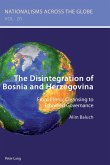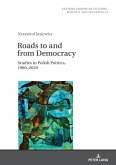Democratization is a process of collective emancipation through self-government. Continuous political contestation is essential for emancipation but, in order to know which strategies and conditions will emancipate us, we also need to know which ones subjugate us. Political mechanisms with the capacity to modulate our individual and collective bodies and make them docile tend to be close relatives of those which make us equal and free.
Drawing on the latest theories concerning globalization and democracy, this book argues that postnational and postsovereign multilevel governance regimes, including the European Union, should be understood as mechanisms of global capitalism aimed at privatizing democracy. Through a detailed applied analysis of the Basque case, the author illustrates how democratization is closely linked to ideas about territory, collective empowerment and institutional political capacity.
Democratization always takes place partially: it never «ends». Contrary to the dominant thinking, this book argues that the incomplete nature of democratization is a positive aspect, with perpetual conflict leading to perpetual change. This is precisely what allows, and obliges, each generation to shape its own forms of emancipation.
Drawing on the latest theories concerning globalization and democracy, this book argues that postnational and postsovereign multilevel governance regimes, including the European Union, should be understood as mechanisms of global capitalism aimed at privatizing democracy. Through a detailed applied analysis of the Basque case, the author illustrates how democratization is closely linked to ideas about territory, collective empowerment and institutional political capacity.
Democratization always takes place partially: it never «ends». Contrary to the dominant thinking, this book argues that the incomplete nature of democratization is a positive aspect, with perpetual conflict leading to perpetual change. This is precisely what allows, and obliges, each generation to shape its own forms of emancipation.









